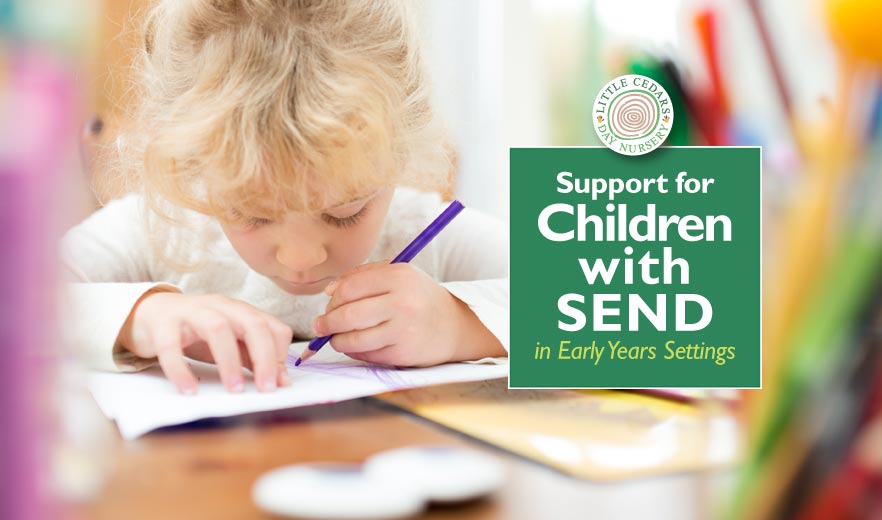
Today, we’re looking at what help is available for children under five with Special Educational Needs & Disabilities (‘SEND’, also sometimes referred to as ‘SEN and disabilities’). Good support for such children, particularly in their formative years, is of critical importance to their longer-term progress, well-being and success. Appropriate support, provided in a timely and tailored manner, can have a real, positive impact on outcomes for children’s lives.
An Environment of Inclusivity
It is important to foster an inclusive environment for children with SEND, including at childcare/early years settings like Little Cedars Nursery. Whatever their differences, we know it’s crucial for all children to feel safe, comfortable, valued, and loved, as well as being free to express themselves. It’s also important that all children, irrespective of ability/disability, are able to make friends and socialise freely. This is therefore nurtured at childcare settings like Little Cedars.
Changes can also be made to childcare environments like ours, where appropriate, to improve accessibility for children with special educational needs and disabilities.
Identifying SEND
 Identification of a special educational need or disability is, of course, the first step in being able to properly support a child with SEND. For this reason, good early years providers like Little Cedars Nursery will, as a matter of course, watch out for signs of things that might be challenging for children. As prescribed by the EYFS approach to early years learning and development, such assessment will occur as part of the day-to-day activities at such nurseries, preschools and early years settings, as well as during more formal assessments like the Progress Check at 2. Childcare practitioners, the Key Person allocated to each individual child, and the setting’s Special Educational Needs Coordinator (SENCo) will usually all be involved in all assessment stages.
Identification of a special educational need or disability is, of course, the first step in being able to properly support a child with SEND. For this reason, good early years providers like Little Cedars Nursery will, as a matter of course, watch out for signs of things that might be challenging for children. As prescribed by the EYFS approach to early years learning and development, such assessment will occur as part of the day-to-day activities at such nurseries, preschools and early years settings, as well as during more formal assessments like the Progress Check at 2. Childcare practitioners, the Key Person allocated to each individual child, and the setting’s Special Educational Needs Coordinator (SENCo) will usually all be involved in all assessment stages.
Parents will be alerted to any suspicions and indeed should alert childcare settings if they have a SEND-related concern regarding their child. After all, parents may well have more insight, as they know their child best.
External professionals including health visitors, paediatricians and professional specialists and therapists can also be brought in to help with assessments if deemed appropriate. Only once a possible special need or disability has been identified and evaluated is it possible to look at appropriate support options for a child.
Developing a Tailored Support Plan
 Support plans for suspected or confirmed special needs or disabilities are then discussed and custom-designed for the child. Such plans will be agreed between the child’s parents/caregivers, staff at the early years setting itself and any external specialists or professionals involved in the child’s care. Such programmes will be customised to suit the individual child’s specific needs and may include tailored activities, strategies, resources and so on. Formalisation of the support programme will allow all parties to pull in the same direction, working cooperatively for the benefit of the child.
Support plans for suspected or confirmed special needs or disabilities are then discussed and custom-designed for the child. Such plans will be agreed between the child’s parents/caregivers, staff at the early years setting itself and any external specialists or professionals involved in the child’s care. Such programmes will be customised to suit the individual child’s specific needs and may include tailored activities, strategies, resources and so on. Formalisation of the support programme will allow all parties to pull in the same direction, working cooperatively for the benefit of the child.
“Assess, Plan, Do and Review.”
Progress and the effectiveness of support plans will be evaluated continuously. Should the support plan require fine-tuning along the way, then adjustments will be made to suit the ongoing needs of the child. There is also possible recourse to request an Education, Health & Care (EHC) assessment of the child’s needs from the local authority if deemed appropriate and sanctioned by parents. Should one occur, then a new support plan may be devised.
Similarly, if the help of external experts is required, for example help from a speech and language therapist, this can be arranged as part of the support package for the child.
With the right support, “the great majority of children and young people with SEN or disabilities … can find work, be supported to live independently, and participate in their community.” (DfE)
Special Funding & the Area SENCo
 In parallel to the SENCo at the child’s early years setting, local authorities also have their own Special Educational Needs Coordinator, known as the Area SENCo. They will also be integral to a child’s SEND support plan, helping with coordination between the local authority, the various parties involved in supporting the child, and in relation to any special funding requirements. If approved, special funding might be required, for example, for an additional member of staff tasked with giving one-to-one support to the child, or to fund extra learning resources and activities for them.
In parallel to the SENCo at the child’s early years setting, local authorities also have their own Special Educational Needs Coordinator, known as the Area SENCo. They will also be integral to a child’s SEND support plan, helping with coordination between the local authority, the various parties involved in supporting the child, and in relation to any special funding requirements. If approved, special funding might be required, for example, for an additional member of staff tasked with giving one-to-one support to the child, or to fund extra learning resources and activities for them.
Area SENCos also continue to coordinate support for children with SEND through the transition from early years settings to school.
The ‘Local Offer’ Information Portal
Every local authority publishes information that informs families about the support available in their area for children and young people with special educational needs or disabilities. This is encapsulated in what’s known as The Local Offer. A Local Offer example for Streatham may help to illustrate the kind of help and resources available. Little Cedars Nursery is in the part of Streatham that falls within the London Borough of Wandsworth, and their Local Offer for SEND can be found here.
Funded Childcare for Under-5s with SEND
Parents may be wondering whether any free childcare is available for children with SEND. Here’s a quick snapshot of some of the options:
 All 3- and 4-year-olds living in England are eligible for a minimum of 570 hours of free childcare per annum, irrespective of whether or not they have SEND. This is known as Universal Free Childcare or their Free entitlement and is typically taken as 15 hours of childcare each week over 38 weeks of the year, but how it is taken can differ. Learn more here.
All 3- and 4-year-olds living in England are eligible for a minimum of 570 hours of free childcare per annum, irrespective of whether or not they have SEND. This is known as Universal Free Childcare or their Free entitlement and is typically taken as 15 hours of childcare each week over 38 weeks of the year, but how it is taken can differ. Learn more here.- In some circumstances, the above entitlement for 3- and 4-year-olds may be extended to 1140 hours per annum, equivalent to 30 hours of free childcare over 38 weeks of the year. This is known as Extended Free Childcare or the 30 hours scheme but, unlike with Universal Free Childcare, is means-tested. Many more eligibility criteria also apply (learn more here).
- 2-year-olds with SEND may also be eligible for free childcare hours if they fall within one or more specific categories (learn more here). These include:
– Receiving Disability Living Allowance (‘DLA’);
– Being subject to an Education, Health & Care Plan (‘EHC’);
– Having received a referral via their local authority’s Portage Service. - Parents of disabled children may be able to claim for free childcare support valued up to £4,000 per year through the Government’s Tax-Free Childcare Scheme. Learn more here.
More information about various Government-funded childcare schemes is available in our rough guide to childcare funding here.
Nursery Places at Little Cedars Nursery, Streatham
Little Cedars is a Nursery & Preschool in Streatham, London SW16


We support all Government-funded childcare schemes for eligible families at Little Cedars. We also endorse all the above support measures aimed at helping children with special educational needs and disabilities. We are officially a good nursery, as benchmarked by Ofsted. Our nursery and preschool are located in Streatham, London SW16 although we are also conveniently close by for families in Streatham Hill, Streatham Common, Streatham Park, Furzedown, Tooting, Balham, Norbury, Colliers Wood, West Norwood, Wandsworth, Clapham and Brixton.
If you would like to apply for a nursery place for your child, ask any questions or book a tour with your child, please select an option below:

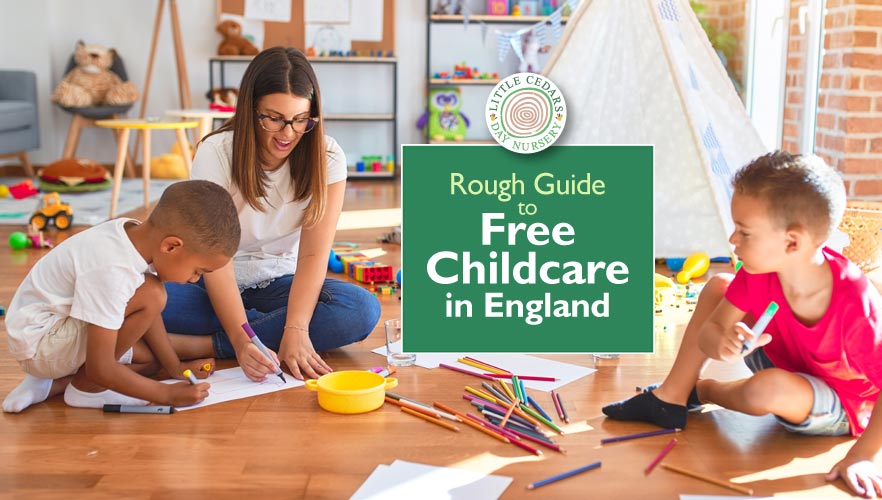
 With Universal Free Childcare, children aged 3 or 4 can receive up to 570 hours of free childcare over the course of the year.
With Universal Free Childcare, children aged 3 or 4 can receive up to 570 hours of free childcare over the course of the year. With Extended Free Childcare, eligible 3- and 4-year-olds can receive up to 1140 hours of free childcare per year instead of only 570.
With Extended Free Childcare, eligible 3- and 4-year-olds can receive up to 1140 hours of free childcare per year instead of only 570. Some disadvantaged children aged 2 can also receive up to 570 hours of free childcare over the course of the year.
Some disadvantaged children aged 2 can also receive up to 570 hours of free childcare over the course of the year. For those that are eligible, up to £2,000 in free childcare is available each year to children aged 11 or under* through the Tax-Free Childcare scheme.
For those that are eligible, up to £2,000 in free childcare is available each year to children aged 11 or under* through the Tax-Free Childcare scheme. You can sacrifice up to £55 per week of your earnings, which will be free of National Insurance and Income Tax, to fund Childcare Vouchers.
You can sacrifice up to £55 per week of your earnings, which will be free of National Insurance and Income Tax, to fund Childcare Vouchers. Following the Spring Budget 2023, childcare funding through Universal Credit is to be improved with nearly 50% more generous funding becoming available from July 2023.
Following the Spring Budget 2023, childcare funding through Universal Credit is to be improved with nearly 50% more generous funding becoming available from July 2023. Those already claiming for childcare costs via Working Tax Credits may be able to obtain up to £122.50 for one or £210.00 for more than one child each week.
Those already claiming for childcare costs via Working Tax Credits may be able to obtain up to £122.50 for one or £210.00 for more than one child each week. 2-year-olds may be eligible for the ’15 Hours’ scheme from April 2024.
2-year-olds may be eligible for the ’15 Hours’ scheme from April 2024. Up to 85% of childcare costs incurred by students may be claimed, up to a maximum of £188.90 per week for 1 child or £323.85 for 2 or more (correct for academic year 2023-2024).
Up to 85% of childcare costs incurred by students may be claimed, up to a maximum of £188.90 per week for 1 child or £323.85 for 2 or more (correct for academic year 2023-2024). Up to £160 per child is available each week for those living outside London.
Up to £160 per child is available each week for those living outside London. While it’s not designed to fund childcare, it can be used to do so in some circumstances.
While it’s not designed to fund childcare, it can be used to do so in some circumstances.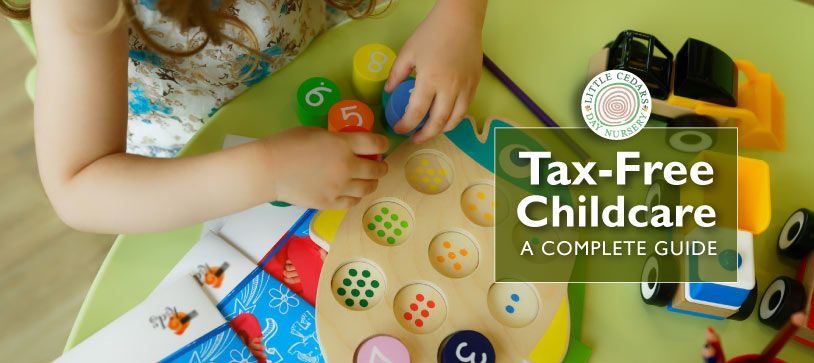
 The Tax-Free Childcare Scheme could save you thousands
The Tax-Free Childcare Scheme could save you thousands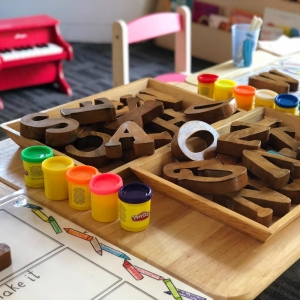 The Tax-Free Childcare Scheme is available to parents of children up to the age of 11 inclusive, or 16 inclusive if they’re disabled.
The Tax-Free Childcare Scheme is available to parents of children up to the age of 11 inclusive, or 16 inclusive if they’re disabled.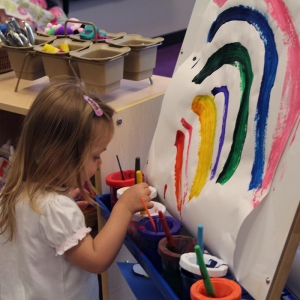 Along with helping to fund nursery places at places like
Along with helping to fund nursery places at places like  TIP: If you want the Government’s contribution to go into your account faster, your payment needs to be paid by Bank Transfer (rather than, say, via a debit card or standing order, although those still work fine if you don’t mind waiting a while longer for the Government’s corresponding contribution).
TIP: If you want the Government’s contribution to go into your account faster, your payment needs to be paid by Bank Transfer (rather than, say, via a debit card or standing order, although those still work fine if you don’t mind waiting a while longer for the Government’s corresponding contribution).